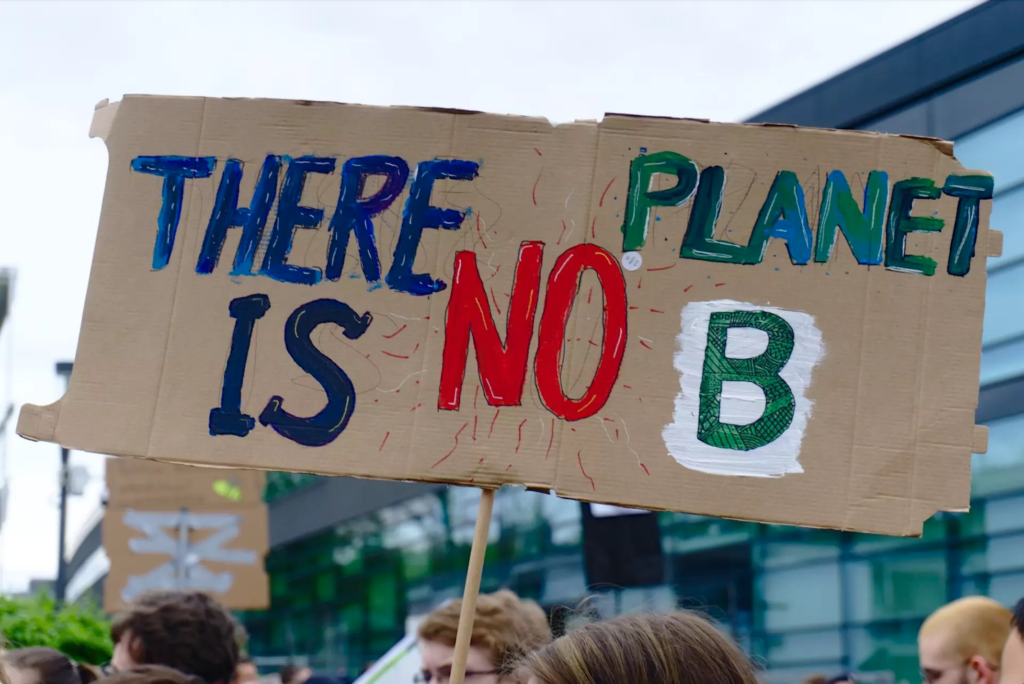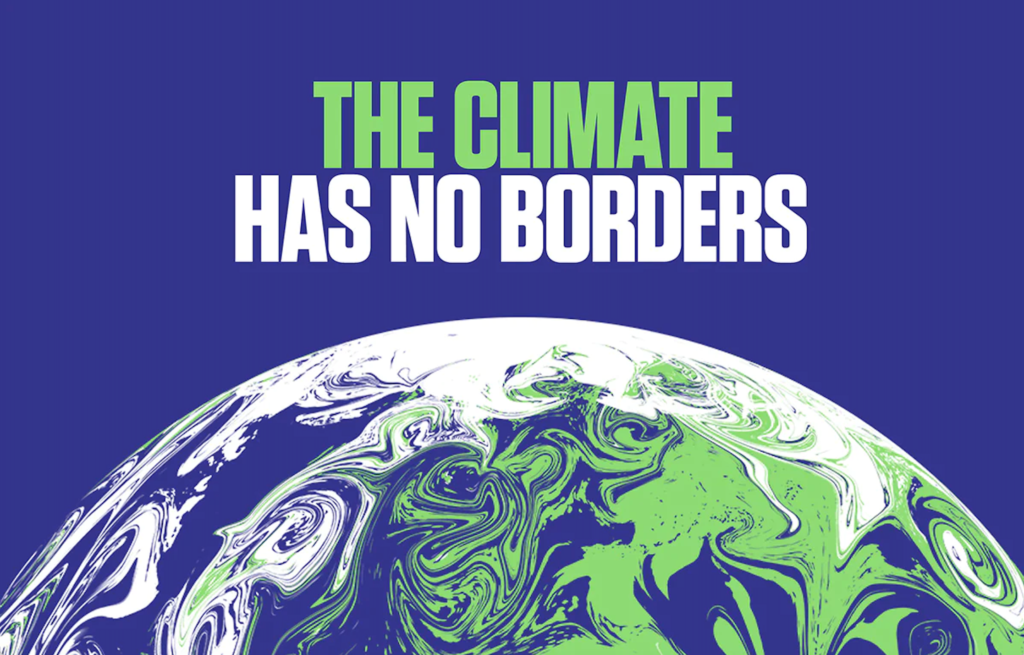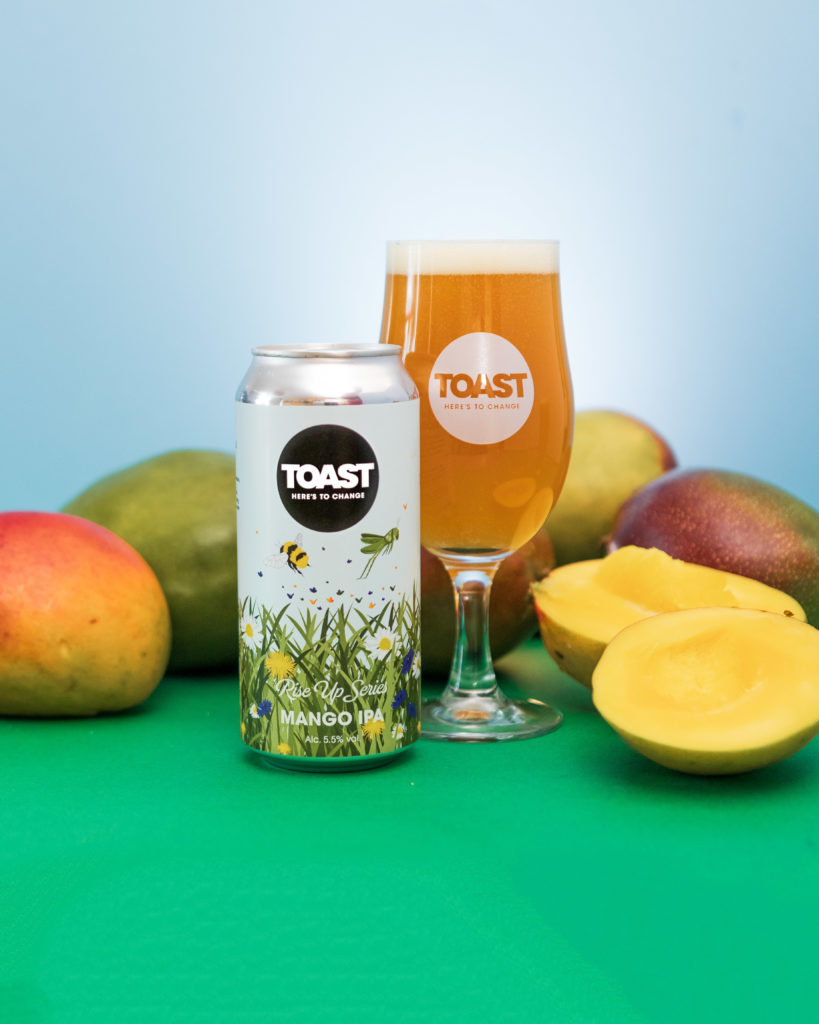What has food got to do with COP26?
6/5/2021
You may have seen COP26 in the headlines lately, as Scotland gears up to host this United Nations meeting about tackling global warming between 1 and 12 November 2021.
As this date in the climate action calendar inches closer, there are growing calls for food to be bumped up the agenda. But what has food (the stuff we eat and more importantly, the stuff we don’t eat) got to do with global warming and COP26?
We’ve been digging into the answers to that question, inspired by our friends at Toast Ale who have found a beer-illiant way of raising awareness of fixing food systems and COP26.
What is COP26 and why is it so important?
Before we jump into food and COP26, let’s clear up exactly what this conference is.
Also called the UN Climate Change Conference, COP26 will be the 26th annual meeting between parties (aka countries, states and nations) that signed an environmental treaty to address climate change in 1994. (Last year’s summit was postponed due to Covid, which is why this upcoming conference is number 26, in case you were wondering.)
It’s all about world leaders coming together to tackle climate change, essentially. COP26 is already being described as the most significant summit of its kind so far.
One reason for this is that nations will be reporting on their progress since the Paris Agreement was signed at COP21. This agreement set out goals to stop the world’s average temperature rising more than 2 degrees – or ideally 1.5 degrees.
Six years on from that, at COP26 nations will be revealing what they’ve achieved so far regarding their commitments around the agreement, as well as looking ahead with their long-term plans. As countries rebuild their economies after Covid, COP26 is also an important chance to work out a green recovery from the pandemic.
So what’s discussed and agreed in Glasgow this November will shape climate policy for the months and years to come, at this crucial period in the climate crisis.
What has food got to do with climate change?
From crop production causing soil erosion and overfishing destroying ocean habitats, to greenhouse gas emissions and mass deforestation from livestock farming – industrial food production puts an enormous strain on the planet.
And our food system’s harm to the environment doesn’t stop at production. Thanks to problems with production, distribution and storage, one third of global food goes to waste, ending up in landfill where it releases large amounts of methane. That’s part of the reason more than a quarter of global greenhouse gas emissions come from our food systems.
This staggering amount of food waste is especially hard to get your head around when you consider that millions of people around the world don’t have enough to eat.
Eating Better, an alliance of organisations working to change the way meat and dairy is produced and consumed in the UK, has stated that, “experts agree that net zero is unachievable without a transformation in what we eat, how we farm, and how much food we waste.”
Will food be on the agenda at COP26?
So, experts think we can’t fix the climate crisis without fixing our food systems. You’d expect then, that food would be high on the agenda for COP26, the most significant climate conference the world has seen.
Well, it’s not.
As the conference host, the UK has an opportunity to get food systems on the menu – and taken seriously. But at the moment, it isn’t one of the UK Government’s priority themes.
There are people trying to change this though, with experts and campaigners calling for COP26 President Alok Sharma to ensure conference talks tackle food systems. Eating Better has coordinated a letter to Sharma, signed by more than 30 people who really know their stuff on the environment – from leading academics to organisations like the RSPB and the Soil Association.
It’s time to Rise Up with Toast Ale
What can the rest of us do to help get food systems on the COP26 agenda? Have a beer. Yep, seriously.
You might already be familiar with Toast Ale, who brew food waste-fighting beers from surplus bread. In keeping with their determination to fix our food systems, they’ve released a series of limited-edition beers to raise money for Feedback, an environmental charity who are busy campaigning for the Government to take action on food systems at COP26. You can get involved too – help to add your voice here.
Every beer in Toast’s Rise Up range is brewed in collaboration with fellow B Corp brands (those are businesses that have certified as meeting minimum standards of social and environmental responsibility, transparency and accountability, FYI).
Each beer highlights a different element of the ecological crisis and the systemic change needed to the food system to tackle climate change and biodiversity loss.
Rise up for rivers with a Baker’s Witbier, brewed with surplus organic loaves from Hobbs House Bakery. Rise up for forests with a Chocolate Stout, brewed with Divine cocoa powder that supports sustainable forestry.
Rise up for biodiversity with a Mango IPA, brewed with wonky mangoes rescued by Oddbox and Flawsome! Drinks. Rise up for oceans with a 0.5% Lager, brewed with teapigs’ pure lemongrass tea. And there are more new releases to come too.
Transformational, systemic change is needed to make the world’s food systems work for the planet. But in this case, the small action of cracking open a beer can truly help us get there.
Keep up the fight against food waste
Toast Ale isn’t the only foodie social enterprise trying to turn the tide on food waste and get us eating better for the planet. From condiments to cold-pressed juice, you can fill your kitchen cupboards with these too…
-
- Rubies in the Rubble: Award-winning relishes and jams made from surplus produce.
- Crumbs Brewing: Beer made using leftover artisan loaves of bread.
- Spare Snacks: Sparing would-be food waste to create healthy, air-dried fruit and veg crisps.
- Flawsome! Drinks: Cold-pressed juice drinks made using wonky would-be waste fruit.
- Güsto Snacks: Air dried apple crisps, also made from would-be waste fruit.
Read more about having a positive impact on the planet:




